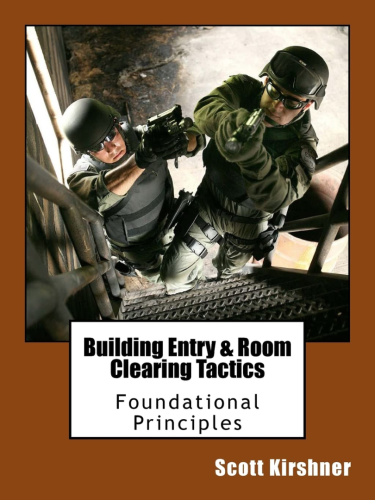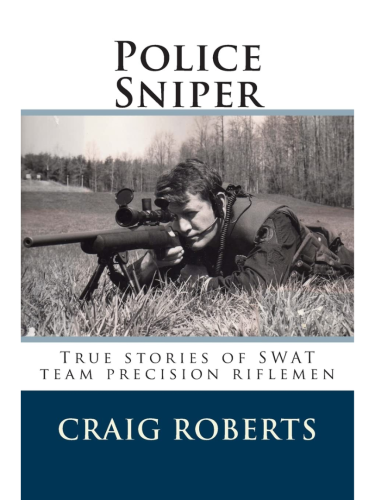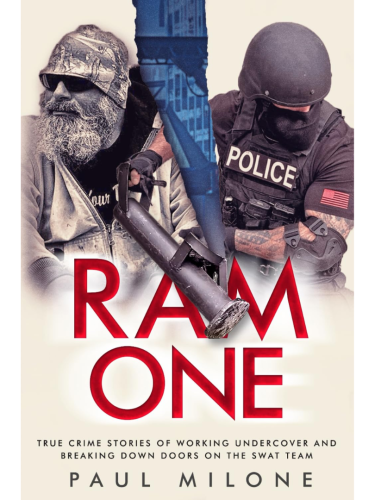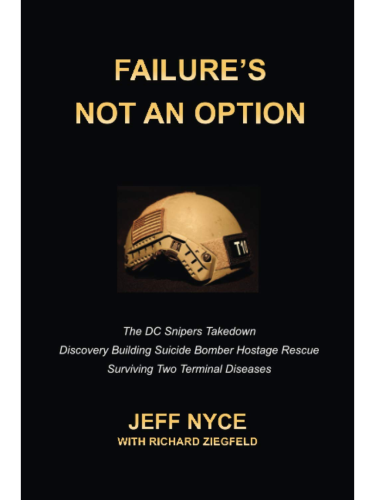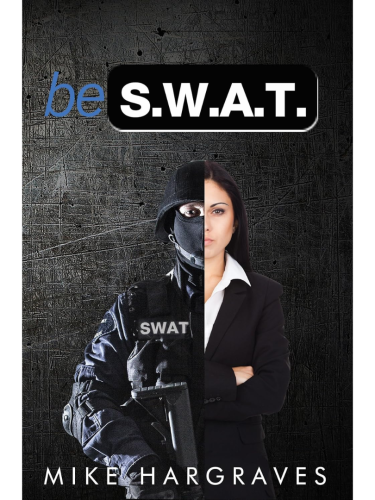Do you ever wonder how coded police talk came about?
Well, radios back in the day were anything but hi-fi, and few agencies had more than one channel to use. There were a lot of static and garbled transmissions. Air time was precious. In an effort to break through the interference, many agencies adopted brevity codes that were easily understood. Many codes started with a hard consonant, like “T,” to add punch to the spoken phrase. Some codes, such as “10-4,” made their way into the general lexicon through their use on TV shows like “Highway Patrol” and pop radio songs such as “Convoy.”
Although there are now plenty of radio channels available, today’s officers still use these codes to keep communication succinct and somewhat secret to the public. Over the years, officers have also cultivated their own language, using certain phrases that only law enforcement officers would understand.
|Interested in learning more about a career in the industry? Check out available police officer careers here.
Below are some common phrases, acronyms and slang terms commonly heard throughout an officer’s career. And because we know each department’s terms differ, email us the ones we missed and we’ll add them to the list.
A
- AB: Member of the Aryan Brotherhood prison gang
- AFIS: Automated Fingerprint Identification System, usually pronounced “Ay-fiss”
- Agency: Law enforcement officer’s generic term for the officer’s employer
- ALPR: Automated license plate recognition system – a fixed or vehicle-mounted set of cameras and computers that records the license plates and photos of vehicles that pass by it, and compares the license plate numbers to a “hot list” of stolen vehicles and vehicles associated with a fugitive
- Amateur night: New Year’s Eve
- Ankle jerk: Foot patrol officer
- ASP: Trade name that has become generic for an expandable baton carried on an officer’s duty belt
- ATL: Attempt to locate – a directive or request to find a missing or wanted person
- AW: Aryan Warrior – a prison gang similar to the Aryan Brotherhood
B
- BAC: Spelled out in conversation – the blood alcohol content of a person, usually an accused drunk driver
- Back up (two meanings): A unit assisting or “backing up” the primary unit on a call for service; a second handgun carried in reserve on the officer’s person, usually concealed – also called a “hide out”
- Bag: East coast term for police uniform – plainclothes officers or detectives sent back to uniformed patrol are said to be “back in the bag”
- Bail out (two meanings): To post money or a bail bond to get someone out of jail; to run on foot from the scene of a crime or a traffic stop
- Basketweave: An embossed design stamped into leather articles, popular for many police uniform items
- Beat: An officer’s assigned patrol area
- Beater: Car in poor mechanical condition
- Beaters: Hands
- Big key: Battering ram, used to break down doors during high-risk warrant service
- Blaster: Police shotgun
- BOLO: Be on the look out – this term often leads information bulletins to law enforcement officers to try and locate a person or item of property
- Brick: Handie-talkie portable radio
- Bronx roll: Failure to stop completely at a stop sign (See “California stop”)
- Bus: Ambulance – used mainly by east coast police
- Buzzer: Police badge, off duty; to “buzz” someone is to show them the badge
C
- CAD: Computer-aided dispatch, the system used to record and track police activity
- California stop: Failure to stop completely at a stop sign (See “Bronx roll”)
- Christmastime: To activate the patrol vehicle’s overhead lights
- Clan lab: A “clandestine laboratory” for the manufacture of illicit drugs
- Clarino: A trade name for a patent leather-like finish used on some uniform shoes and gun leather
- Class B: Wash-and-wear police uniform with sleeve and thigh pockets; Class B uniforms cost less, are more comfortable, allow for carrying of more gear and do not need to be dry cleaned as do the more traditional Class A uniforms
- CODIS: Combined DNA Index System, usually pronounced “CO-diss”
- CompStat: A numbers-driven management tool to track crimes and police activity in a city, county or operational police division, and hold managers and executives responsible for results and failures
- Crack: Alkaloid form of cocaine, insoluble in water; must be heated to sublimation and smoked for use; highly addictive; also called “rock”
- Crank: Methamphetamine; a person who is under the influence of methamphetamine is “cranked” or “cranked up”
- CSO: Community service officer, a non-sworn police employee, usually uniformed, who handles crime reports and other low-risk tasks in the field
- CUBO: Conduct unbecoming an officer, a catch-all term for otherwise unnamed police misconduct
- Cuff and stuff: to arrest someone; to handcuff them and put them in the prisoner compartment of a patrol car or jail
D
- Deuce: Drunk driver
- Dine & dash: Leave a restaurant without paying for a meal
- Dogworthy: K-9 officer’s estimation of a crime scene in terms of whether he wants his dog to search it or not
- DonnyBrook: A fight or free-for-all brawl
- DV: Domestic violence, a physical assault by one member of a household on another member
- DUI: Driving under the influence; depending on jurisdiction, also called OUI (operating under the influence), DWI (driving while intoxicated) or DUII (driving under the influence of intoxicants)
- Dusted: Under the influence of PCP, which is often called “dust” or “angel dust”
- Duster buster: Nylon cord used to tie the feet of a person under the influence of PCP or other drugs
E
- EDP: Emotionally disturbed person
- Eltee: Version of “LT” or “lieutenant;" used as informal form of address
- ETOH on board: Intoxicated or under the influence of alcohol; term taken from one used frequently by emergency medical personnel who abbreviate ethyl alcohol as “ETOH”
- Eyeball: view or observe
F
- Female half: Term used to describe one of the participants in a domestic or other type of dispute
- FI: Field interview card, filled out by an officer who interviews a person in the field; contains their demographic information and the circumstances of the stop.
- Fish: To take a suspect into custody immediately after a hearing
- Five-oh: Police, from the TV program “Hawaii 5-0" (gang slang)
- Flake: Street slang for cocaine; a person of little worth or credibility, as in “flaky”
- Flip a sign: criminal-to-criminal hand signs or vocal warnings
- FOP: Fraternal Order of Police; Legitimate police fraternal and labor organization that is located mostly in the east and midwest; the FOP is often the bargaining unit for police labor contracts; always spelled out in conversation
- Forthwith: Used over the radio, a directive to do something immediately
- Fourth Amendment search: Intrusion by a government agent, usually a police officer or deputy sheriff, into a reasonable expectation of privacy
G
- Get small: To get away; disappear
- GOA: Radio code for “gone on arrival;" also used to announce one’s departure
- Good for: Having sufficient probable cause to arrest for a crime
- Green death: Facetious police term for marijuana
- Greenie: Traffic ticket or citation
- Grunt: uniformed patrol officer
H
- HA: Hell’s Angels motorcycle gang
- HGN: Horizontal gaze nystagmus, a physiological sign of alcohol or drug intoxication
- Highballer: Speeding motorist
- Hit & split: Leave the scene of an accident
- Hitskip: Hit-and-run accident, where the person responsible for the accident leaves the scene without making a report or rendering aid to victims
- Hit the bricks: To begin to patrol from the police station
- Hobble: A nylon cord with snap hooks on one or both ends, used to secure the feet and legs of a combative suspect
- Hook and book: To arrest someone
- Hook: Tow truck
- Hooks: Handcuffs
- Hooptee: Automobile (gang slang)
- Hot roller: Stolen car
- HT: Handie-talkie (portable two-way radio)
I
- Implied consent: The legal doctrine used to compel suspected drunk consent drivers to submit to a chemical test to determine their blood alcohol level; reading an admonition of this obligation is called “giving implied consent”
- In the wind: Lose contact with a suspect; flee on foot
J
- JP: Justice of the Peace, often the magistrate who signs and authorizes a search warrant
- JDLR: Just don’t look right; expression used by police officers while viewing a suspicious circumstance on a hunch
K
- K-9: Police dog
- KMA: LAPD expression for someone killed in a gunfight with police; the origin of the expression stems from the old LAPD radio call letters (KMA367) that at one time ended all transmissions
- Kojak light: A portable flashing light used by officers in unmarked cars; named for TV detective Theo Kojak
L
- Leg bail: To run from police on foot to avoid arrest
- Livescan: Electronic scanner used in jails and identification bureaus to record fingerprints for record
- Load-bearing vest: External body armor carrier with attachment points for gear otherwise carried on the equipment or duty belt; using a load-bearing vest reduces the incidence of hip and back stress injuries by distributing the weight of the officer’s gear more efficiently
M
- Male half: Term used to describe one of the participants in a domestic or other type of dispute
- MDC/MDT/MCT: Mobile data computer, the computer installed in a patrol car
- Miranda: The “you have the right to remain silent” admonition read to suspects who may be interrogated; its name comes from the landmark 1966 Supreme Court case Miranda v. Arizona
O
- OIS: Officer-involved shooting
- On board: Having alcohol or an intoxicating drug in the system
- Overheads: Emergency lights on the roof of a police vehicle
P
- PC: Probable cause, the minimum standard of evidence to make an arrest or a Fourth Amendment search
- PCP: Phencyclidine, a hallucinogenic drug that often causes users to behave violently and have high resistance to pain; often consumed by smoking a marijuana cigarette that has been dipped in PCP
- P&P: Probation and parole department or office
- Packing: Carrying a concealed firearm
- Packset: portable two-way radio
- Paper: A police report, or the responsibility to write the report; a search warrant; a suspect who is on parole or probation is “on paper”
- Patch: Motorcycle gang slang for the emblem of the gang, usually worn on a denim jacket/vest; often erroneously referred to as the gang’s “colors;" an emblem-wearing member is considered to be “patched;" police shoulder emblem, designating a particular law enforcement agency; patch collectors abound in law enforcement
- PBT: Preliminary breath test, a small, handheld device used to check blood alcohol levels in the field
- Peerless: Handcuffs, named for the Peerless Handcuff Company
- Perp: Perpetrator or suspect
- Person of interest: Someone with knowledge or involvement in a criminal investigation; may be a suspect, witness or someone with critical information
- Pick off: To apprehend; to be struck by an auto
- Player: Suspect; may distinguish suspect from criminally uninvolved acquaintances or bystanders
- POV: Personally-owned vehicle
- Power house: Office of the sheriff or chief of police
- PR: Person reporting, the one notifying the police of an incident
- PSD: Protective Services Detail for a VIP, like an elected official or visiting dignitary
Q
- Q: San Quentin State Prison in California
R
- RA: Rescue ambulance, term used mostly in Southern California
- Rabbit: A person who runs from police or the act of running
- Red ball: A high-profile crime, requiring round-the-clock investigation
- Rip off: Arrest
- RMS: Records management system, used to contain reports and other police documentation
- Roller: Police car
- RP: Reporting person, the one notifying the police of an incident
- Run code: Drive to a location using the patrol car’s emergency lights and siren
S
- Sam Browne: Law enforcement officer’s equipment belt that holds his sidearm holster, handcuffs, radio and other tools; named for Sir General Sam Browne, a British officer who lost his left arm and developed a belt with a diagonal cross-strap that allowed him to carry and draw his sword with only one hand
- Scratch: Traffic citation
- Shark: Unmarked police car, fully equipped for interdiction (siren, grill-mounted emergency lights, shotgun rack, radio) except for paint and emblems; used for low-profile patrol
- Sherm: Street slang for PCP, after Sherman cigarettes, which are dipped in liquid PCP prior to smoking; Shermans are used as they have a dark brown wrapper (similar to a cigar) and the stain from the PCP chemicals does not show
- Skate: Getting out of trouble; a criminal might skate from his charges if a witness didn’t show up for trial
- Slim Jim: A blade-like tool used to open vehicle doors without a key; it takes skill and finesse to use effectively
- Smokepole: Police shotgun
- SO: Spelled out “ess oh,” the sheriff’s office or department
- Sosh: Pronounced with a long “o,” an abbreviation for “social security number”
- Squirrel cage: Police headquarters
- Strapped: Carrying a concealed firearm
- SRO: School resource officer, a uniformed officer or deputy assigned to a school for security and liaison
- SWAT: Special Weapons and Tactics
T
- Tats: Tattoos (prison slang); a person with many tattoos, particularly those common to prisons and jails
- Terry stop: Investigative detention of a person by a law enforcement officer, named for the 1968 U.S. Supreme Court decision in Terry v. Ohio
- Till tap: Unlawful taking of money from a cash register
- Tin: Police badge
- Tinhorn: A petty criminal from out of town
- TNT: Ticket and towing patrol (parking violations enforcement)
- Tripping: Following a suspect as he drives around
- Tweaker: Habitual user of methamphetamine
U
- Unsub: FBI term for “unknown subject/suspect,” a person of interest whose identity is unknown
- UTL: Radio code for “unable to locate”
V
- Vest: Soft body armor, worn under the uniform shirt
- VICAP: Violent Criminal Apprehension Program, an FBI-run database that collects reports of violent crime across the country and attempts to identify common themes that could point to a serial killer
W
- Wagon: Prisoner transport van
- War suit: Police uniform
- War bag: Patrol officer’s equipment bag
- Wash down: Task usually performed by the fire department to rid the pavement of gasoline spilled from an auto accident
- Works: Set of needles and syringes used to inject illegal drugs
Misc.
- 7: Shorthand for “Code 7" or meal break
- 10-42 Club: The company of retired officers, titled after a radio code meaning “completed patrol tour”
- 24/24 Rule: Phrase referring to the last 24 hours of a murder victim’s life and the first 24 hours after the body is discovered, which are the most important hours in an investigation
This article, originally published on December 14, 2021, has been updated.


